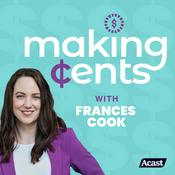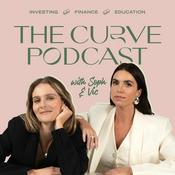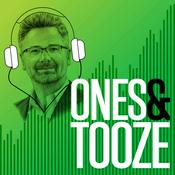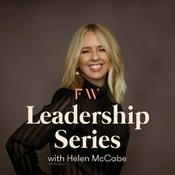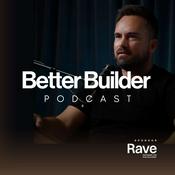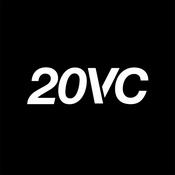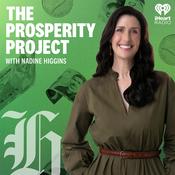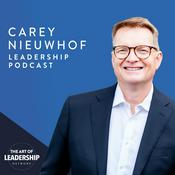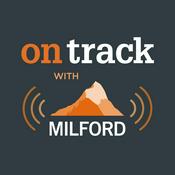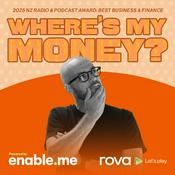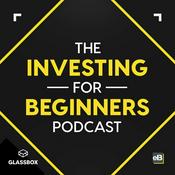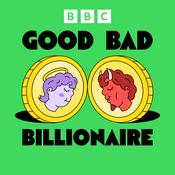30 episodes
- In this episode of the Health Coach Show, we discuss the role of AI powered tools to streamline data collection to save time, reduce admin and create better outcomes for our clients.
Shivaun Conn, a HCANZA accredited health and wellness coach and dietitian, is joined by Robbie Clark, dietitian, exercise scientist, and Director and Co-founder of HealthBank.io, an AI-powered digital clinic software.
We discuss:
How we utilise 'data' in healthcare
How AI can be utilised to streamline data collection and help us to make more better clinical decisions
How AI powered tools can support and empower our clients
What health coaches should know about privacy and safety of AI
The Healthbank platform - AI powered digital clinic software
Building visibility online, networking and mentoring for health coaches
Follow on resources:
Health Bank website: https://www.healthbank.io/
Interested in learning more about health coaching?
We offer short self paced courses that will give you tools and strategies to support clients, and we also offer interactive, accredited courses that teach the foundation skills of health coaching, and courses that provide gap training and skill mastery for those who are looking to expand their skill set and become nationally recognised with the Health Coaches Australia New Zealand Association (HCANZA)
Our courses are fully online, with webinars delivered via zoom.
To access free resources or to book one of our upcoming courses visit our website: www.accreditedhealthcoaching.com.au
If you find this podcast valuable, please share, follow, and leave a review. You can also follow us on social media
If you would like to provide feedback, ask a question or suggest a topic, please contact us via our email, [email protected]
Thank you for listening, your support is appreciated.
Proudly a HCANZA accredited course provider. - In this episode of the Health Coach Show, we discuss how to know your worth as a health coach, find and clarify your niche, and grow and scale your practice online without burning out.
Shivaun Conn, a HCANZA accredited health and wellness coach and dietitian, is joined by Rebekah Jones, a registered dietitian, private practice business mentor, and creator of the Scalable Practice Framework™.
We discuss:
How to scale our practices without burnout
Service options and modes of delivery
Business mapping - designing a strategy that aligns with our lifestyle, supports our goals, and delivers ideal client outcomes
Niches - do we need one? How do we niche in a way that suits us?
Knowing our worth and overcoming imposter syndrome - using logic, data, and evidence
Follow on resources:
"Niche Clarity Coach: Find Your Niche & Ideal Client (In Minutes - with AI)” : https://rebekah-jones.mykajabi.com/protocol-builder-bot-1
Rebekah Jones website: https://rebekahjones.com.au/
10% discount code for programs: AHCA10
Interested in learning more about health coaching?
We offer short self paced courses that will give you tools and strategies to support clients, and we also offer interactive, accredited courses that teach the foundation skills of health coaching, and courses that provide gap training and skill mastery for those who are looking to expand their skill set and become nationally recognised with the Health Coaches Australia New Zealand Association (HCANZA)
Our courses are fully online, with webinars delivered via zoom.
To access free resources or to book one of our upcoming courses visit our website: www.accreditedhealthcoaching.com.au
If you find this podcast valuable, please share, follow, and leave a review. You can also follow us on social media
If you would like to provide feedback, ask a question or suggest a topic, please contact us via our email, [email protected]
Thank you for listening, your support is appreciated.
Proudly a HCANZA accredited course provider. - In this episode of the Health Coach Show, we’re discussing Self Determination Theory (SDT), a key theory of motivation that underpins the work health coaches do. Sharon Curtain, dietitian and HCANZA accredited health coach, is joined by Gordon Spence, a coaching psychologist, exercise scientist, educator, researcher, private practitioner and an expert in SDT.
We discuss:
Why SDT is a robust theory of optimal functioning
The mini theories
Basic Needs Theory and the guidance is gives us to create an optimal experience for coaching clients
What makes it different from other motivation theories
The Extrinsic to Intrinsic motivation continuum
How to facilitate a shift in motivation by connecting to beliefs, values and intrinsic motivators
Allowing space for clients can be
Gordon has just had a new paper published - The Health Activation Process: An
autonomy-supportive coaching model for facilitating sustainable active living. He is now building on this, using guided autobiography to get people to reflect on memories of physical activity which can result in leaning in to positivity, changing perspectives towards being active.
Gordon is a Senior Lecturer in the Master of Science in Coaching Psychology program, University of Sydney, he’s published many scholarly articles and book chapters, two books on healthy ageing, provides evidence-based coaching & consulting services and sits on the board of Health Coaches Australia New Zealand Association (HCANZA). You can contact Gordon at [email protected]
You can read more about coaching and self determination here:
Spence, Gordon & Oades, Lindsay. (2011). Coaching with self-determination in mind: Using theory to advance evidence-based coaching practice. International Journal of Evidence Based Coaching and Mentoring. 9. 37-55. https://www.researchgate.net/publication/313707730_Coaching_with_self-determination_in_mind_Using_theory_to_advance_evidence-based_coaching_practice
To learn more about health coaching, access free resources or to book one of our upcoming courses visit our website: www.accreditedhealthcoaching.com.au
Proudly a HCANZA accredited course provider. - In this episode of The Health Coach Show, Shivaun Conn, dietitian and accredited health coach, is joined by Dr Suzy Green — a clinical and coaching psychologist, and Founder & CEO of The Positivity Institute.
A leader in the complementary fields of Coaching Psychology and Positive Psychology, Suzy has published over twenty academic chapters and peer-reviewed journal articles. She is also the co-editor of Positive Psychology Coaching in Practice, Positive Psychology Coaching in the Workplace, and The Positivity Prescription.
Suzy was a lecturer in the Master of Coaching Psychology program at the University of Sydney for ten years and is an Honorary Vice President of the International Society for Coaching Psychology.
In this episode, we discuss:
What is Positive Psychology Coaching?
Positive psychology tools and approaches
Weaving expertise into coaching
Research on coaching effectiveness for health outcomes and sustainable health behaviours
How coaches can benefit from expanding their learning in coaching psychology
CPD courses and events for coaches in coaching psychology and positive psychology coaching
Links
Suzy’s new course the Professional Certificate in Positive Psychology Coaching. Earlybird ends March 31st
Our latest events including the Psych Health & Safety Conference in June
The new series of COACH+ The Art & Science of Positive Psychology Coaching - In this episode of The Health Coach Show, we explore the forward-thinking role of health coaches and Health Improvement Practitioners (HIPs). This initiative, led by the Ministry of Health, introduces a new model of integrated primary mental health and addiction services (IPMHA) within Primary Health Organisations (PHOs) and general practice teams.
Leana Clark shares her journey from nursing to becoming a health coach in New Zealand GP clinics, offering insights into her experience and the impact of her work.
We discuss:
The distinct roles of health coaches and Health Improvement Practitioners in New Zealand and how they support clients.
The training required to become a health coach in New Zealand.
The benefits she has observed for both clients and healthcare teams.
Lessons Australia can take from New Zealand’s approach.
Tune in to gain valuable insights into the evolving landscape of integrated health care.
Links:
Free Webinar - Health Coaching https://www.accreditedhealthcoaching.com.au/free-health-coaching-webinars
Online Courses
https://www.accreditedhealthcoaching.com.au/shop-courses
Mentoring
https://www.accreditedhealthcoaching.com.au/mentoring
More Business podcasts
Trending Business podcasts
About The Health Coach Show
The Health Coach Show by Shivaun Conn and Sharon Curtain is a podcast all about the science, tips, tools and the practicalities of changing behaviour. As dietitians and HCANZA accredited health coaches we’ve got 50 years experience between us, supporting others to create healthier lifestyle behaviours and habits. We’ll be talking about the skills of coaching, what’s helpful and surprisingly unhelpful and we will share practical strategies that you can use to help clients get motivated, get unstuck and take action towards living as the healthiest version of themselves.
Podcast websiteListen to The Health Coach Show, Friends That Invest and many other podcasts from around the world with the radio.net app

Get the free radio.net app
- Stations and podcasts to bookmark
- Stream via Wi-Fi or Bluetooth
- Supports Carplay & Android Auto
- Many other app features
Get the free radio.net app
- Stations and podcasts to bookmark
- Stream via Wi-Fi or Bluetooth
- Supports Carplay & Android Auto
- Many other app features


The Health Coach Show
Scan code,
download the app,
start listening.
download the app,
start listening.





